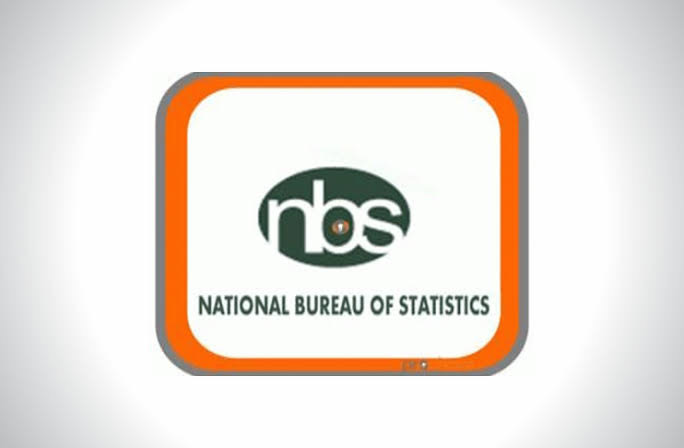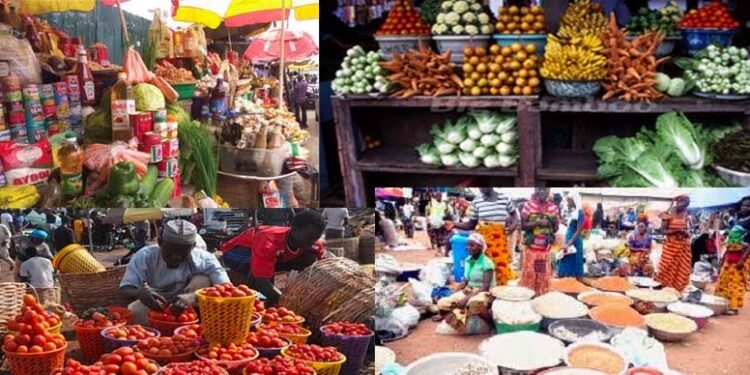The prices of key food commodities in Nigeria, such as local rice, beans, eggs, and bread, have continued to increase steadily, despite recent reductions in the costs of other food items.
According to a report by the National Bureau of Statistics (NBS) titled “Selected Food Price Watch for August 2024,” released yesterday, these essential items have experienced price hikes ranging between 2.5 and 5.5 percent in August compared to the previous month.
The NBS report provided a detailed analysis of the price changes, highlighting the month-on-month (MoM) increases. It stated, “The average price of 1kg of brown beans (sold loose) stood at N2,574.63.

This indicates a 5.31 percent rise in price on a Month-on-Month (MoM) basis from N2,444.81 in July 2024.” This notable increase reflects the ongoing inflationary pressures that consumers are facing when purchasing everyday food items.
The price of eggs also saw a significant rise in August. According to the report, “On a MoM basis, the average price of agric eggs (medium size, 12 pieces) rose by 5.48 percent to N2,289.19 from N2,170.17 in July 2024.” Eggs are a staple source of protein for many households, and this price increase adds additional strain to consumers already battling high food costs.
Bread, another essential food item, was not spared from the inflationary trend. The report noted, “On a MoM basis, bread (sliced) increased by 2.28 percent to N1,459.85 from N1,427.25 in July 2024.”
“This steady rise in the price of bread is significant, as it is a fundamental component of daily meals for a large portion of the population. Similarly, local rice, which is a major staple food in Nigeria, has also seen price increases. 
“The NBS reported that “the average price of 1kg of local rice (sold loose) went up by 3.65 percent to N1,831.05 in August 2024 from N1,766.64 in July 2024 on a MoM basis.”
The NBS further indicated that the prices of these essential food items have increased by over 100 percent on a year-on-year (YoY) basis, which underscores the growing challenges faced by Nigerian consumers in accessing affordable food.

The report also provided a state-by-state breakdown of the prices of various commodities, revealing significant regional price disparities. “The state profile analysis in August 2024 reveals that the highest average price of 1kg of brown beans (sold loose) was recorded in Akwa Ibom at N3,276.79, while the lowest was in Adamawa State at N1,710.92.”
This significant variation in prices across states illustrates the complex dynamics of the Nigerian food market and the uneven impact of inflation on different regions.
In terms of egg prices, “the highest average price of agric eggs (medium size, 12 pieces) was recorded in Niger State at N2,996.92, while the lowest was in Jigawa State at N1,786.01,” the report highlighted.
This wide price disparity between states further complicates the situation for consumers, with those in certain regions having to pay nearly double the price for the same quantity of eggs.
The price of bread also exhibited regional variations, with “Rivers State recording the highest price at N1,850, while Yobe recorded the lowest price at N908.81,” according to the NBS.
Additionally, the price of local rice showed significant differences, with Kogi State recording the highest average price of N2,680.29 per kilogram, while Benue State had the lowest price at N1,206.84 per kilogram.
Despite the rising costs of these essential food items, the NBS report did offer some relief in the form of price reductions for certain other commodities. The report indicated that the prices of tomatoes and yams had declined in August compared to the previous month.
“The price of 1kg of tomatoes declined by 11.07 percent MoM to N1,506.35 from N1,693.83 in July 2024,” the report stated. This decrease in tomato prices provides some reprieve for consumers who rely on the vegetable as a core ingredient in their meals.
Similarly, yam tubers also saw a price drop in August, as “the price of 1kg of yam tuber decreased by 7.8 percent to N1,661.80 from N1,802.84 in July 2024,” the NBS noted. Yams are a staple food in many Nigerian households, and this reduction in price could help ease the financial burden on families who rely on them as a primary source of carbohydrates.
While the prices of some food items, such as tomatoes and yams have eased, the continued rise in the cost of essential commodities such as rice, beans, eggs, and bread presents ongoing challenges for Nigerian consumers.
The significant MoM and YoY increases in these items reflect broader economic issues, including inflation and supply chain disruptions, that continue to affect the cost of living in Nigeria.
































